Business
Trump’s H-1B visa move: End of the road Indians’ American dream? How fee hike may help India retain talent – The Times of India

US President Donald Trump’s move to sharply hike the fee for H-1B visas to $100,000 has Indian tech sector workers and students in America worried about their future in the world’s largest economy. Trump’s move is aimed at addressing worries about US technology workers who believe they lose out on jobs due to immigrant professionals.The H-1B skilled-worker visa programme, which is mainly utilised by the technology sector, has traditionally served as a crucial entry route for foreign professionals into the United States, with Indian nationals comprising approximately 70% of recipients.Now these professionals and students face a significant impact as the Trump administration revises the programme.
Indians & H-1B visas
Indian parents have over the years consistently encouraged their offspring to pursue academic paths—specifically engineering—believing these would provide optimal employment prospects. The Indian Institutes of Technology have produced exceptional English-proficient computer specialists and engineers who became highly sought after in the United States, according to a Wall Street Journal report.Britta Glennon, an economist and assistant professor of management at the Wharton School specialising in immigration and innovation research, told WSJ that Indians demonstrated exceptional engagement with the H-1B programme following its establishment in 1990.The achievements of Indian technology professionals who received H-1B visas inspired more Indian students to pursue similar educational paths, according to Glennon. A notable example is Sundar Pichai, who now leads Alphabet. Indians comprised more than one-third of successful H-1B visa recipients by 2003.Also Read | The $100,000 H-1B gamble: Why Donald Trump’s visa tax won’t save American jobs – winners and losersIn 2007, when visa applications exceeded available positions, US authorities implemented a lottery-based allocation system.
Why are Americans complaining about H-1B visas?
According to the report, US employees have lodged multiple complaints with the Equal Employment Opportunity Commission against Tata Consultancy Services, India’s largest technology services organisation, claiming they were dismissed and their positions were filled by H-1B visa holders.Last year, TCS received 5,500 H-1B visas, placing it second to Amazon’s allocation of over 14,000. The yearly limit stands at 85,000 visas, with educational institutions being exempt from this restriction.TCS has previously stated that these allegations lack substance and emphasised its proven track record as an equal-opportunity employer within the United States.According to research by Colgate University economists Rishi R. Sharma and Chad Sparber quoted in the report, the change to lottery system led Indian outsourcing companies—which provide tech services to American businesses through combined US-based and India-based teams—to submit many applications to enhance their chances of securing H-1B visas.Subsequently, these Indian service providers began lending their surplus US-based Indian employees to clients, triggering protests from American workers who felt they were being displaced through domestic outsourcing.Experts note that whilst outsourcing companies must legally demonstrate payment above certain thresholds, the compensation offered to H-1B employees at these firms typically falls in the lower range for similar positions.
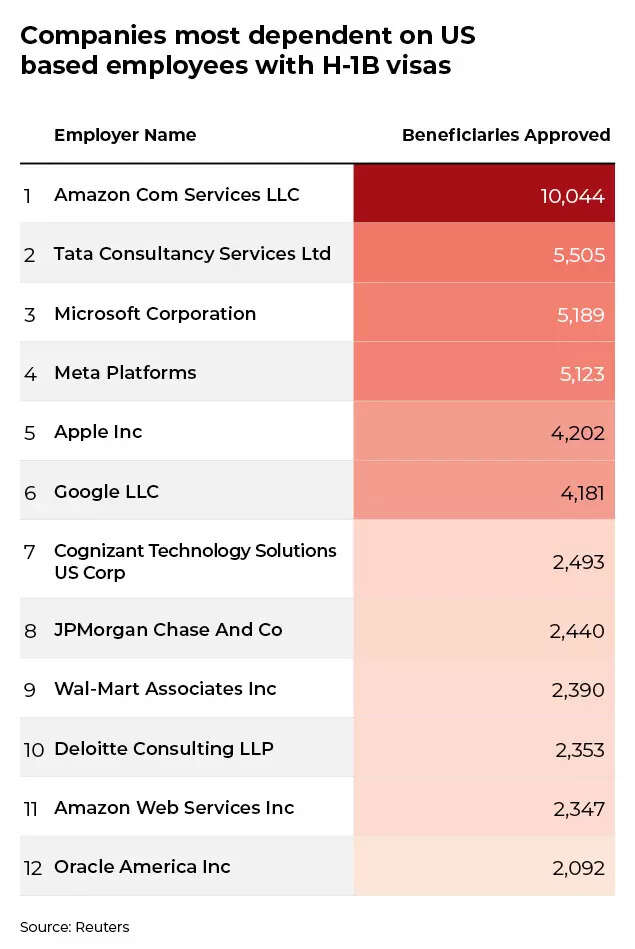
Companies dependent on H-1B visas
Indian outsourcing companies indicate they have reduced their dependence on H-1B visas whilst focusing on training and employing American workers.Also Read | Alternatives to H-1B visas: After fee hike by Trump to $100,000, O1 & L1 visas gain traction; check cost, approval rates
H-1B visa overhaul: Troubles for startups
US is implementing new changes to the H-1B visa programme. The new fee structure will be introduced for first-time applicants beginning next year, alongside plans to modify the lottery system to prioritise applications with higher salary offerings.The increased fees may be a deterrent for startups. Siddharth Sarasvati, at Trial and Error, an AI starup told WSJ that the increased fee poses challenges for startups like theirs. “H-1B needed reform,” said Sarasvati. “But this isn’t reform, it’s a sledgehammer…this ensures that only companies with the deepest pockets can play.”
H-1B visa fee hike: Will it end up being advantage India?
India could potentially gain advantages from stricter US visa regulations affecting Indian technology professionals. According to experts, India’s technological advancement partly resulted from professionals returning after unsuccessful H-1B applications, contributing to the development of centres like Bengaluru.Industry experts are debating the potential global impact of the proposed new visa fee on the IT workforce landscape. Vivek Wadhwa, who leads Vionix Biosciences and previously served as a distinguished fellow at Harvard Law School and Carnegie Mellon, highlighted serious implications for the United States.
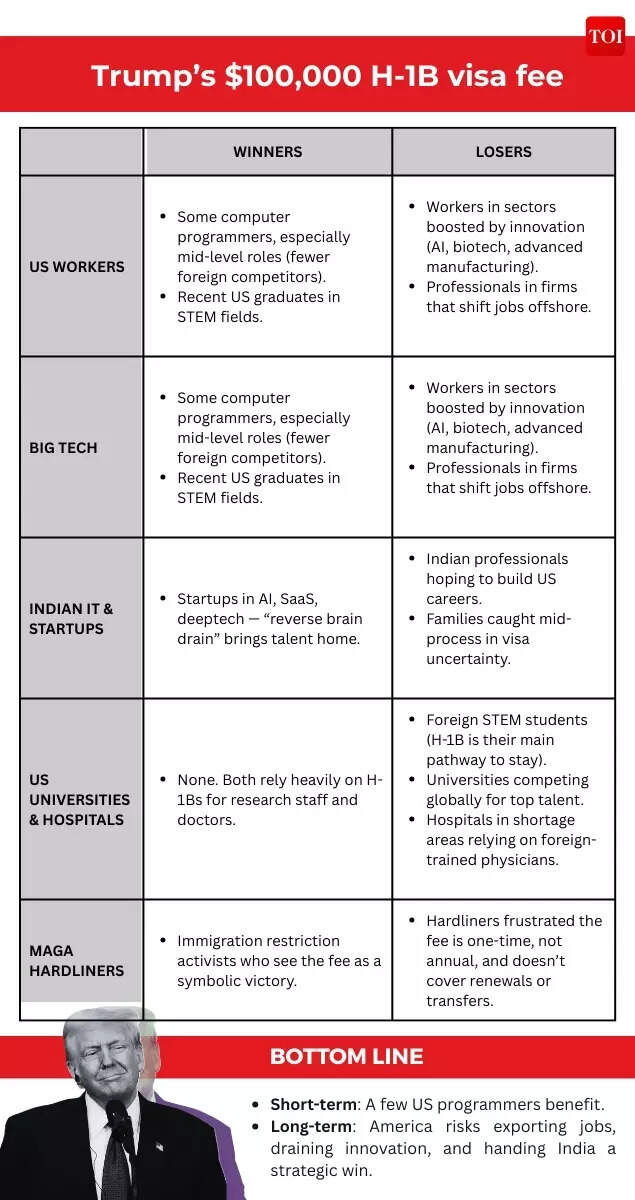
Trump’s H-1B visa fee hike: What it means
“Trump’s $100,000 H-1B fee is economic suicide for America. It will force Indian talent to go home, taking with them skills, savings, and global experience. Indian engineers have been trapped in limbo for years because of endless visa backlogs. Trump has just pushed them to make the obvious choice: return home where opportunities are greater,” he was quoted as saying by TOI. Wadhwa noted that this reverse migration would significantly advantage India. “They will bring capital, networks, and the knowhow of scaling companies globally.”“Donald Trump’s 100,000 H-1B fee will choke U.S. innovation, and turbocharge India’s,” said Amitabh Kant, the former head of an Indian government-policy think tank, in a post on X. “By slamming the door on global talent, America pushes the next wave of labs, patents, innovation and startups to Bangalore and Hyderabad, Pune and Gurgaon.”Also Read | Trump’s H-1B visa fee hike to backfire? Wall Street banks set to rely more on Indian GCCs; may deepen presence in IndiaDespite increased opportunities in India over recent years, the country faces challenges. Many technology graduates struggle to secure well-compensated positions amongst the large talent pool. The work environment remains considerably more hierarchical compared to the United States, according to technology professionals quoted in the report. Additionally, artificial intelligence developments could reduce entry-level positions.A 31-year-old software engineer based in Albany, N.Y., who arrived in the US in 2017 for doctoral studies, highlighted the disparity in professional opportunities. “India has a lot of good schools to train engineers but nothing much to engage them after graduation,” he remarked. He obtained his H-1B visa in 2022 during his company’s first application attempt.Despite finding the visa’s single-employer restriction limiting, he appreciates the American technology sector’s environment. He and his spouse, also an H-1B holder, are considering alternative skilled-worker visa pathways to stay in the US, particularly if H-1B regulations become stricter. They view Canada as an alternative destination rather than returning home, the WSJ report said.Destinations such as Germany, the United Kingdom and Canada are actively seeking to attract skilled professionals from India.As the United States tightens its immigration policies for skilled workers, nations including Germany, Canada and the UK have positioned themselves as welcoming alternatives for Indian technology experts, according to an ET report.
Business
‘Side Hustle Generation’: Over 50% Of US Gen Z Opting For Extra Gigs Amid Economic Uncertainty

Last Updated:
At least 57% of Gen Z in the US now have side gigs, from retail to gig work, amid economic uncertainty and concerns over the impact of AI on jobs.

Gen-Z is the first generation for whom a 9-to-5 job isn’t essential for achieving financial success. (AI-Generated Image)
Amid widespread economic uncertainty, more than half of the Gen Z population in the United States is opting for side gigs to navigate the job market and for extra cash.
At least 57% of Gen Z in the US now have side gigs, compared to 21% of boomers and older, according to The Harris Poll, which dubbed them “America’s first true ‘side hustle’ generation.”
Most of them are picking up side hustles, from retail to gig work, for extra cash. Younger people “want to work [and] find success, but many of them just feel disillusioned with the opportunities to get there through the traditional career ladder,” Glassdoor chief economist Daniel Zhao told Axios.
Role Of AI
In an August report, Glassdoor researchers said that some of the youths are chasing creative or entrepreneurial goals. Moreover, AI and other technological advances have made it easier for professionals to monetise their skills and passions.
“We’re witnessing a true side hustle generation where work identity lives outside of traditional employment. Additional commentary and research also shows that there’s a growing number of Employee+ workers who diversify income streams without abandoning job security,” Glassdoor said.
“For Gen Z, the day job funds the passion project. Work pays the bills, but identity and fulfilment can come from entrepreneurial pursuits, creative endeavours, or social causes they care about,” it added.
Why Are Gen-Z Opting For Side Gigs?
One of the main reasons for this shift is job anxiety. Recent graduates are struggling to secure jobs, while those with them aren’t seeing the career growth they expect, according to Zhao.
Data shows that the financial optimism for college students has fallen to their lowest level since 2018, mostly due to concerns over unemployment and ‘AI-induced layoffs’. The advent of AI remains the most pressing concern among young workers.
As per The Harris Poll, Gen Z is the first generation for whom a 9-to-5 job isn’t essential for achieving financial success. Side hustles are not merely distractions or fallback options; they are central to Gen Z’s identity, offering creative, entrepreneurial, or activist outlets that main jobs cannot supply.
“It definitely makes me feel more financially secure,” Katie Arce, who works full-time in e-commerce and picks up shifts at a vintage clothing store in Austin, Texas, told Axios.
United States of America (USA)
January 11, 2026, 17:08 IST
Read More
Business
‘Political Stability Has Powered India’s Growth’: PM Modi At Vibrant Gujarat Conference
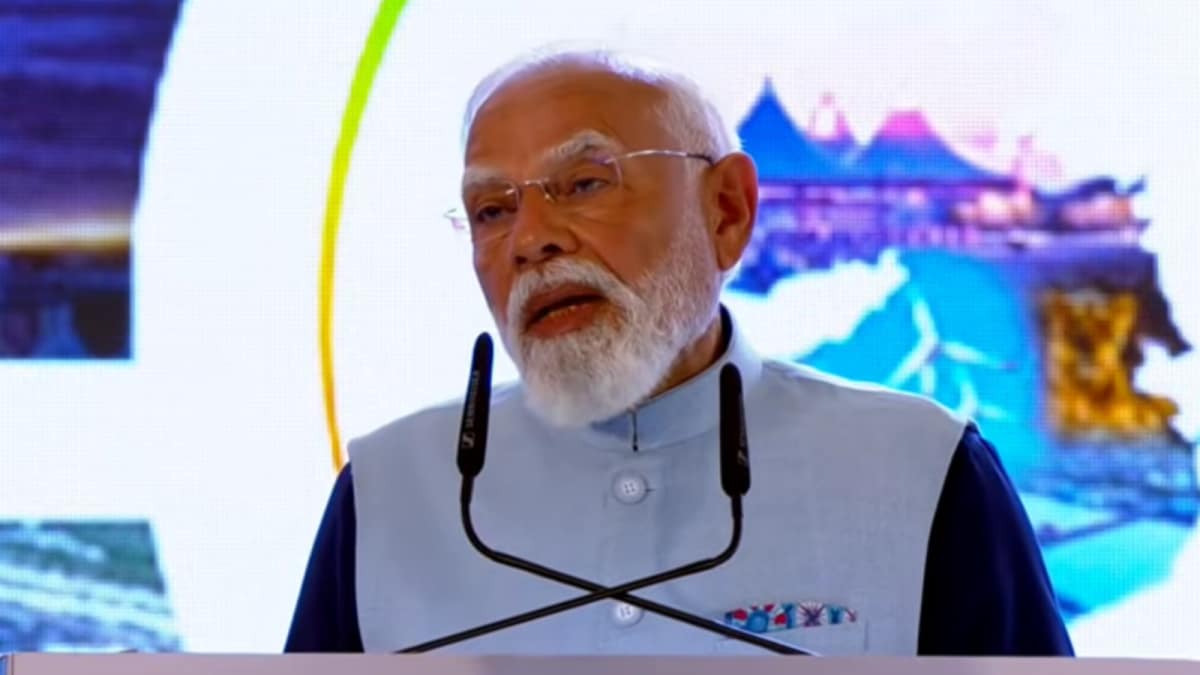
Last Updated:
PM Modi further emphasised that over the past 11 years, India has emerged as the largest data consumer and built the country’s largest real-time digital platform.

PM Modi speaking at the inauguration of Vibrant Gujarat Regional Conference. (PTI)
Prime Minister Narendra Modi on Sunday said that India’s political stability and strong macroeconomic fundamentals are driving global investor confidence, with Gujarat emerging as a key anchor of the country’s growth story.
While addressing the Vibrant Gujarat Regional Conference in Gujarat, the Prime Minister highlighted India’s economic trajectory, saying that the country is the world’s fastest-growing major economy, with inflation under control and a strong foundation for long-term growth. He said that reform express is driving India’s journey to developed nation status.
He highlighted that India is the largest producer of milk and a leading manufacturer of generic medicines, reflecting the country’s growing strength in both agriculture and pharmaceuticals.
VIDEO | Rajkot: PM Modi (@narendramodi) says, “India is the world’s fastest-growing large economy and inflation is under control. Agricultural production in India is setting new records, and the country ranks number one in milk production. India is also the world’s largest… pic.twitter.com/R6f7tDhoZD— Press Trust of India (@PTI_News) January 11, 2026
He noted that global institutions are increasingly bullish on India, with the International Monetary Fund (IMF) describing the country as the engine of global growth.
“India is the world’s 3rd largest startup ecosystem, 3rd largest aviation market, we are in the top 3 metro networks of the world,” he said, asserting that the country is heading to become the world’s 3rd largest economy.
PM Modi further emphasised that over the past 11 years, India has emerged as the largest data consumer and built the country’s largest real-time digital platform. He highlighted that India is now the second-largest mobile manufacturer, whereas earlier the country imported nine out of ten phones.
The Prime Minister also underlined Gujarat’s contribution to India becoming the world’s third-largest economy, noting that the state has grown across sectors. He said regions like Saurashtra and Kutch, once seen as remote, have now become major drivers of Atmanirbhar Bharat and investment-led growth.
Highlighting Saurashtra’s manufacturing strength, with over 2.5 lakh MSMEs producing goods ranging from basic tools to high-precision aircraft components, PM Modi pointed to the region hosting the world’s largest ship-breaking yard and being a major hub for tile manufacturing.
He further said that India’s first semiconductor fabrication plant is coming up in Dholera, with the land ready and a predictable policy environment supporting long-term growth.
Vibrant Gujarat Regional Conference
PM Modi on Sunday inaugurated the Vibrant Gujarat Regional Conference for the Kutch and Saurashtra regions.
The event saw the presence of Gujarat Chief Minister Bhupendra Patel and Deputy Chief Minister Harsh Sanghavi, among other dignitaries.
He also inaugurated 13 New Smart Industrial Estates in 7 Districts (Amreli, Bhavnagar, Jamnagar, Kutch, Morbi, Rajkot and Surendranagar) spanning an area of over 3540 Acres by Gujarat Industrial Development Corporation before his address on Sunday.
The two-day conference summit will highlight Gujarat’s leadership in the clean energy sector and its alignment with India’s ‘Panchamrit’ commitments announced by the Prime Minister. These include achieving 500 GW of non-fossil energy capacity by 2030, meeting 50 per cent of energy requirements from renewable sources, reducing projected carbon emissions by 1 billion tonnes, lowering carbon intensity by 45 per cent by 2030, and attaining net-zero emissions by 2070.
Rajkot, India, India
January 11, 2026, 16:22 IST
Read More
Business
EV adoptions gathers pace in 2025: Sales hit 2.3 million units; UP, Maharashtra lead sales – The Times of India

India sold were at 2.3 million units of electric vehicle in 2025, making up 8 per cent of all new vehicle registrations, according to a new report by the India Energy Storage Alliance, based on Vahan Portal data, cited by ANI. This boost was driven by incentives offered by the government and festive seasons. The majority portion of the sales were two-wheelers at 1.28 million units.The total registrations recorded in the overall passenger car market in the year 2025 stood at 28.2 million. Two-wheelers marked the most registrations 20 million registrations, while passenger cars were at 4.4 million and agricultural vehicles recorded 1.06 million. The recorded sales rose steadily throughout the year though slightly improved in the festival seasons due to GST benefits.Electric two-wheelers were the stars of the EV market, grabbing 57 per cent of sales. Three-wheelers came second with 0.8 million units (35 per cent), while four-wheelers logged 175,000 units. The report spotted good progress in electric delivery vehicles, especially in smaller commercial segments.Uttar Pradesh was at the forefront in this, with 400,000 units sold, taking an 18 percent market share in India’s EV segment. Maharashtra followed, with 266,000 units sold, contributing 12 percent to the segment, followed by Karnataka, with 200,000 units sold, contributing 9 percent to the market. The three accounted for over 40 percent in the country’s EV sales.Some smaller states recorded a very encouraging uptake of EVs. Delhi, Kerala, and Goa were able to reach an EV-to-ICE ratio of 14 percent, 12 percent, and 11 percent respectively. Meanwhile, states from the Northeast, Tripura, and Assam, achieved ratios of 18 percent and 14 percent, respectively.A major achievement was recorded in the three-wheeler segment, which attained a market penetration of 32 per cent. The government also created a record with their biggest ever order of electric buses—10,900 unit—valued at a massive Rs 10,900 crore through the PM E-DRIVE scheme.The report also stated that that while smaller vehicles led EV adoption, government efforts to electrify larger commercial vehicles and develop charging infrastructure were setting up India’s EV sector for continued growth beyond 2025.
-

 Sports6 days ago
Sports6 days agoVAR review: Why was Wirtz onside in Premier League, offside in Europe?
-

 Entertainment4 days ago
Entertainment4 days agoDoes new US food pyramid put too much steak on your plate?
-

 Politics4 days ago
Politics4 days agoUK says provided assistance in US-led tanker seizure
-

 Entertainment4 days ago
Entertainment4 days agoWhy did Nick Reiner’s lawyer Alan Jackson withdraw from case?
-

 Politics6 days ago
Politics6 days agoChina’s birth-rate push sputters as couples stay child-free
-

 Sports6 days ago
Sports6 days agoSteelers escape Ravens’ late push, win AFC North title
-
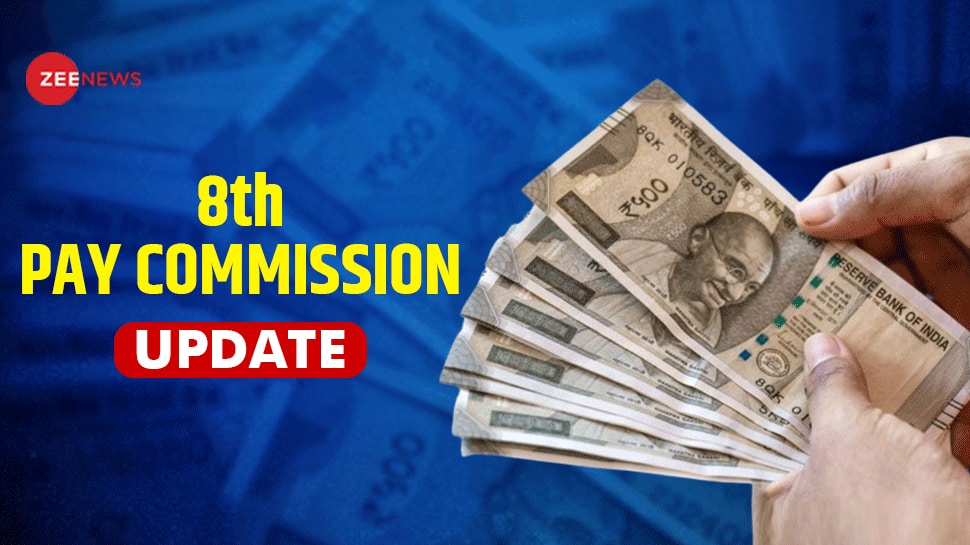
 Business6 days ago
Business6 days ago8th Pay Commission: From Policy Review, Cabinet Approval To Implementation –Key Stages Explained
-
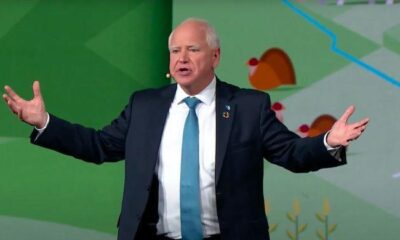
 Entertainment6 days ago
Entertainment6 days agoMinnesota Governor Tim Walz to drop out of 2026 race, official confirmation expected soon














